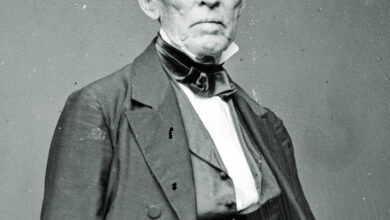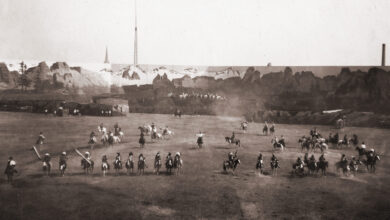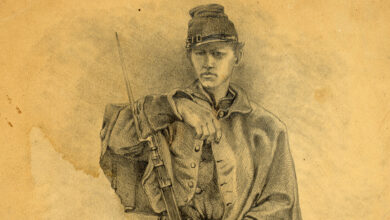

Books
Wyatt Earp: Frontier Marshal (1931, by Stuart N. Lake)
Though ex-publicity agent Stuart Lake interviewed ex-lawman Wyatt Earp on several occasions, this ostensible biography is laced with fabrications. One shouldn’t blame Earp. Lake was out to create a folk hero and sell books, and in that he succeeded admirably. Frontier Marshal served as the origin story for several Hollywood films, as well as the popular 1955–61 TV series The Life and Legend of Wyatt Earp, starring Hugh O’Brian.
Wyatt Earp: The Life Behind the Legend (1997, by Casey Tefertiller)
This is the most balanced extant account of Wyatt’s life and the one book a newcomer to the topic should read before any other. More seasoned readers don’t have to agree with everything Tefertiller writes to appreciate his well-researched narrative.
A Wyatt Earp Anthology: Long May His Story Be Told (2019, edited by Roy B. Young, Gary L. Roberts and Casey Tefertiller)
This collection of essays provides an overview of Earp’s life and corresponding history from diverse viewpoints. Among those with dueling opinions about the famed lawman are two of the editors who compiled the anthology. Casey Tefertiller considers Earp a heroic figure, while Roy Young thinks him a liar. (Gary Roberts lands somewhere in the middle.) It’s worth bearing in mind that no matter how many people repeat a falsehood attributed to Earp, it doesn’t mean the lie originated with him.
Wyatt Earp: A Biography of the Legend (2002–10, by Lee A. Silva)
This meticulously researched and documented multivolume work is the authoritative account of Earp’s life. It is a shame author Lee Silva did not live to complete the work.
Murder in Tombstone: The Forgotten Trial of Wyatt Earp (2004, by Steven Lubet)
The trial of the book’s title—examining the actions of Wyatt Earp, brothers Virgil and Morgan Earp, and Doc Holliday at the headline-grabbing gunfight near the O.K. Corral—was actually a pretrial hearing under Justice Wells Spicer to determine whether to present the case to a grand jury. Author and attorney Steven Lubet goes through the hearing in meticulous detail to explain why Spicer ruled as he did, in favor of the defendants.
John Peters Ringo: Mythical Gunfighter (1987, by Ben T. Traywick)
Tombstone town historian and author Ben Traywick was certain of two things about Johnny Ringo: that the gunfighter’s reputation was based on very little, and that Wyatt Earp killed Ringo. While there’s little evidence to prove Wyatt was there when Johnny’s number came up, Traywick’s insistence it wasn’t suicide holds up pretty well under scrutiny.
Movies
Tombstone (1993, on DVD and Blu-ray)
This George P. Cosmatos film is arguably the greatest Western ever made. It’s not good history, but it perhaps comes closer than any other version. If you think Wyatt Earp (played by Kurt Russell) and Doc Holliday (Val Kilmer) were villains, you’ll hate it. If you recognize them as flawed men who stood up to a politically connected gang of rustlers and assassins, you’ll love it.
Wyatt Earp (1994, on DVD and Blu-ray)
Director Lawrence Kasdan’s vision of Wyatt Earp (Kevin Costner) and Doc Holliday (Dennis Quaid) also sticks to the facts more closely than previous depictions. Unfortunately for viewers, Wyatt comes across as uptight, and Doc as dark and dislikable, though Quaid did turn in a brilliant performance. While some historians support this take on the relationship between the real-life lawman and gunman, it remains hard to believe they were close friends.
My Darling Clementine (1946, on DVD and Blu-ray)
This John Ford classic features winning performances by Henry Fonda (Earp) and Victor Mature (Holliday), though it bears little semblance to the historic events in Tombstone, particularly the subplot about an imaginary “Clementine” (Cathy Downs) whom the tubercular doctor (not dentist) abandons for her own good. Unfortunately, this is the only account many contemporary viewers learned.
Gunfight at the O.K. Corral (1957, on DVD and Blu-ray)
This John Sturges film also rates as great entertainment with little historic value. Burt Lancaster (Earp) and Kirk Douglas (Holliday) turn in powerful performances, bound together less as friends and more as men of honor—a plausible way of viewing the pair. But Ike Clanton never led the Cowboys, and Tombstone didn’t ship cattle, having lacked a rail line at the time. Sung by Frankie Laine, the title ballad will ring in your ears for years to come.
Source link




